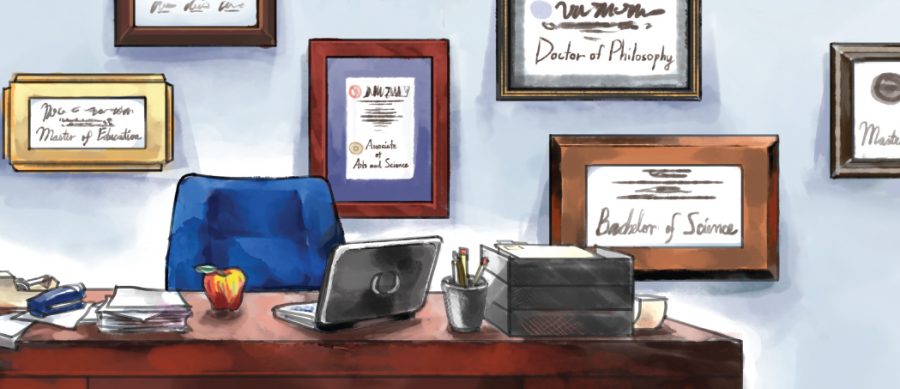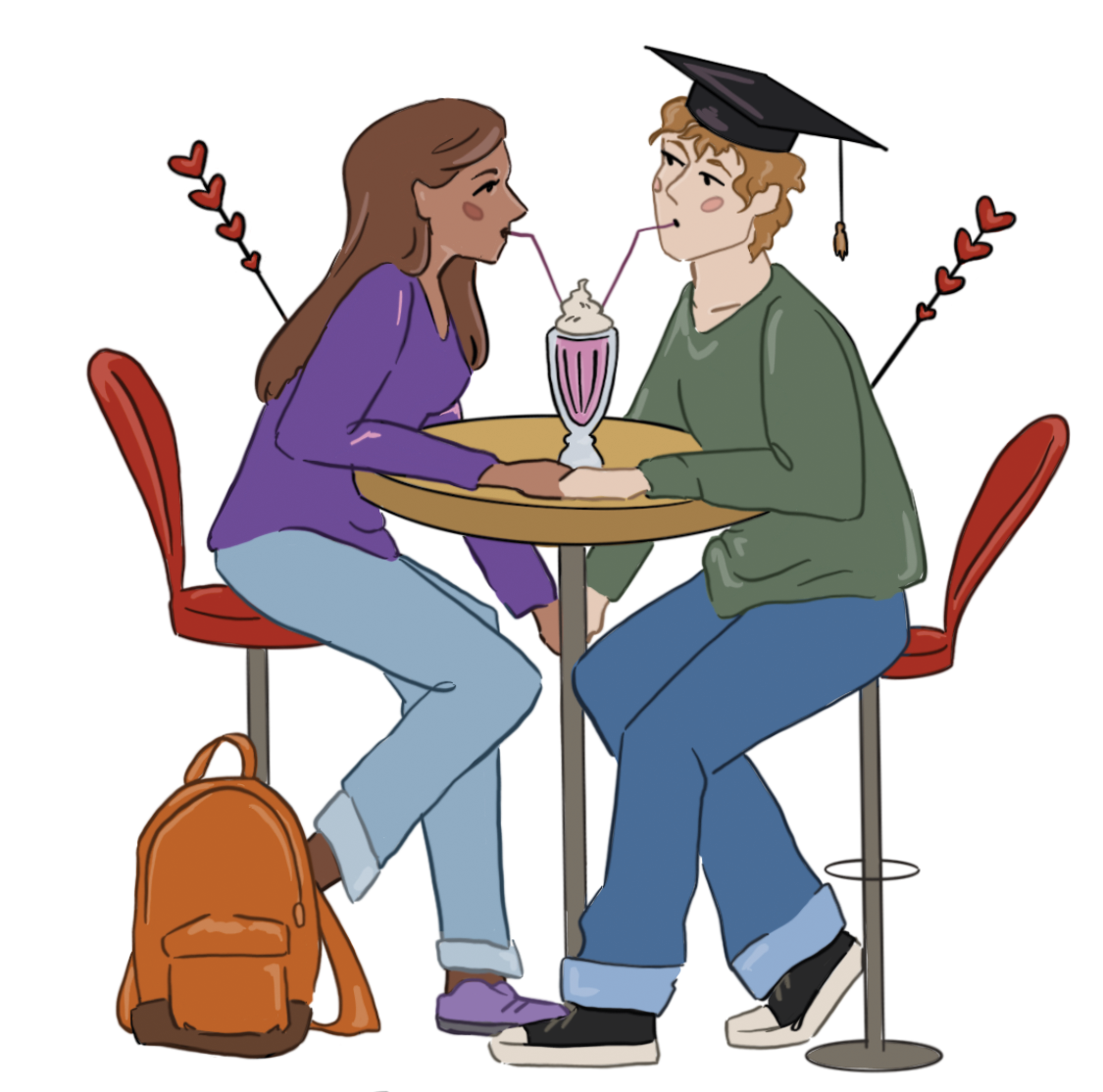After another long day of testing and note-taking, Diego Ayala ’18 faced his most challenging task at home: telling his mom what he learned in school.
Reflecting on lectures from his science, history and math classes, Ayala said it was difficult to pinpoint a certain lesson that resonated with him because all he could remember was transcribing his teacher’s presentation and copying notes from a textbook.
“Are we such good students that we don’t really need good teachers, we just need teachers who know about their subjects?” Ayala asked.
His mom, a professor of education at California State University, Los Angeles, answered that question with a firm “no.”
“She thinks that a lot of the work at Harvard-Westlake is placed on the students in ways that in other schools it might not be,” Ayala said. “She talks with her students at length about what makes a good teacher and how to teach well. Whereas at Harvard-Westlake, anyone who knows anything about the subject can lecture on it.”
During his junior year, four out of Ayala’s seven teachers had doctoral degrees, but he said he was not convinced that having a higher academic degree made for a better teacher.
All 224 faculty members hold a bachelor’s degree, according to the school’s website. Of those, 132 hold master’s degrees and 28 hold doctoral degrees.
According to a Chronicle poll of 265 students, 67 percent said they want to know their teachers’ credentials, but 71 percent said they don’t think Harvard-Westlake teachers should be required to have a master’s degree.
While the Los Angeles Unified School District requires that all teachers have a bachelor’s degree and a teaching certificate, no such requirements exist for private school teachers.
Some private high schools in Los Angeles, like Viewpoint School, Brentwood School and Windward School, list the academic degrees and alma maters of all faculty members on their websites.
The Harvard-Westlake website does not include this information on faculty members.
President Rick Commons said he was unaware that the website did not provide that information because that decision was made before he assumed the role of President.
When considering teaching candidates, Commons said their degrees are only part of the equation. He said he is much more concerned about their passion and knowledge on their subject, which is gauged when they practice teaching a class as part of the interview process.
“At Harvard-Westlake, classroom management isn’t one of those things that you interview for because everyone shows up ready to work and ready to learn,” Commons said. “If you think about your favorite teachers, it’s not necessarily the academic background they’ve had. It’s who they are.”
Commons said the school offers professional development funds to encourage and support teachers who are pursuing their degrees. Commons spoke from personal experience, as Harvard-Westlake funded his studies to earn his Master’s degree in English at Middlebury College when he started out as a teacher.
Ayala said his teachers with higher degrees appear to be more knowledgeable and passionate in their respective fields but can also be less accessible. Though teachers with master’s or doctoral degrees may be more receptive to discussing topics related to their field that are not covered in class, Ayala said their classes and expectations for their students can be less clear than those expressed by teachers without higher degrees.
English teacher Malina Mamigonian, who earned her bachelor’s degree in government and literature from Claremont McKenna College and her master’s and doctoral degrees in British and American literature from the University of York in England, said she has relied on her education in various ways throughout her time as a teacher.
“I believe firmly that having a solid background in your field is only to the benefit of your students, and so having been grounded in analytical reading as a discipline throughout graduate school, I am very well-equipped to teach analytical reading and analytical writing,” Mamigonian said. “You have to love and believe in what you do and be brutally truthful with yourself about it—then you can share that unfettered curiosity and concern.”
Lily* ’18 said she notices a greater difference in classroom environments in which teachers have less teaching experience rather than varying academic degrees.
“I’ve never doubted any teacher’s credentials or experience that they spoke of, but I have wondered why someone with the experience they’ve had was able to be teaching at least one of the classes they taught,” Lily said.
Mathematics teacher Adam Varney took on his first teaching job last year after earning his Bachelor of Science in 2014 and Master of Arts and Mathematics in 2016 at University of California, Santa Barbara.
Varney worked as a teaching assistant while earning his master’s degree but said he had never been exposed to private schools before coming to Harvard-Westlake.
“I was nervous about being close to my students in age, just in terms that there is a difference of respect and command,” Varney said. “Being introduced to the private school culture and community was very shocking and it took me out of the comfort zone that I was familiar with, so I really didn’t want to mess up because I figured the stakes were a little higher here than they were at a public school.”
As a new teacher, Varney said his biggest takeaway was learning to be open to critique and asking for help.
While Mamigonian decided not to pursue a masters in education, she said she always assumed that she would become a teacher.
“I teach secondary school because I’m excited about working with higher-level skills and that’s what I’m best at,” Mamigonian said. “I enjoy working with younger people because that’s where I think there’s some hope in creating a better world.”
*Names have been changed.





































